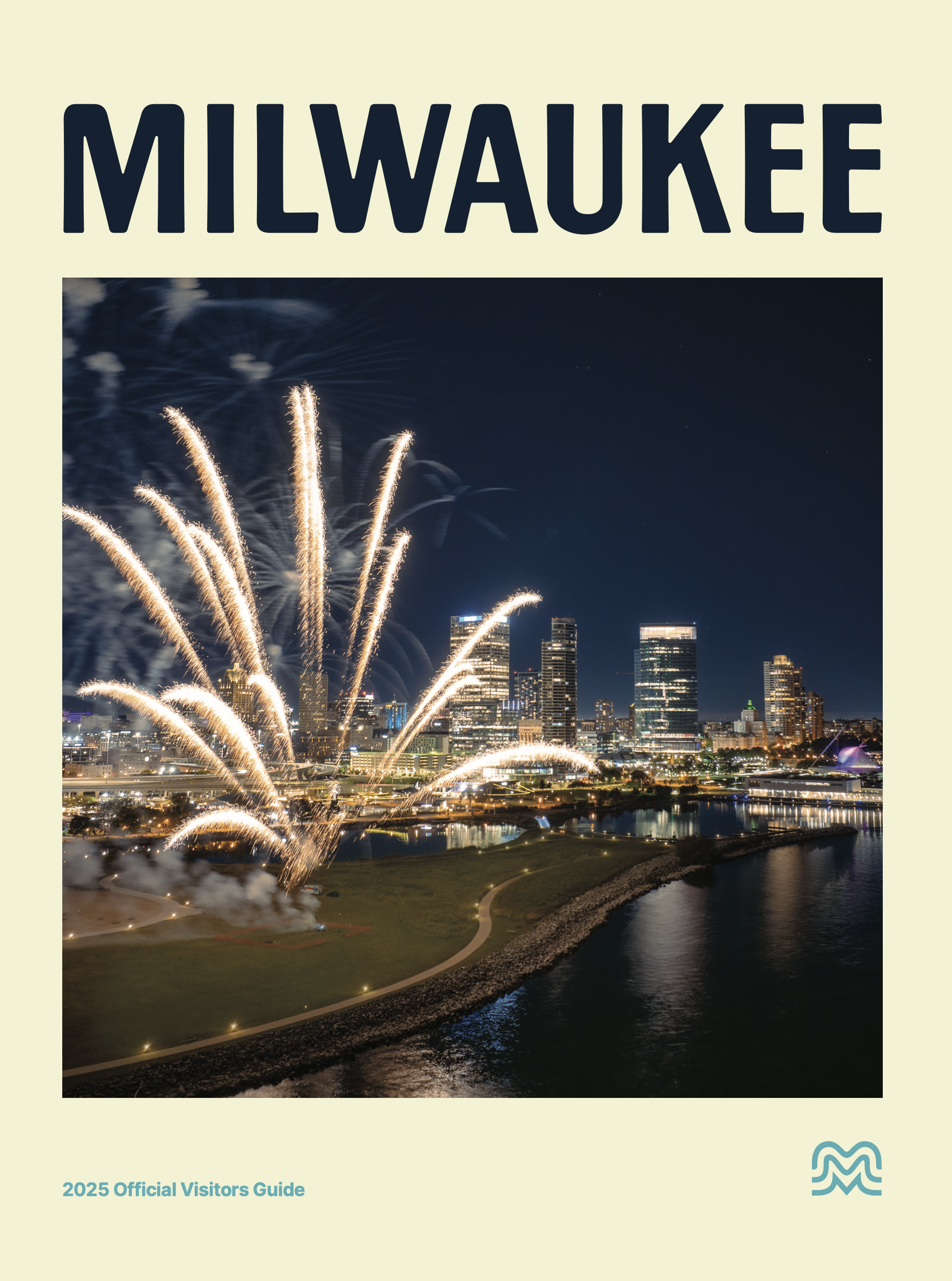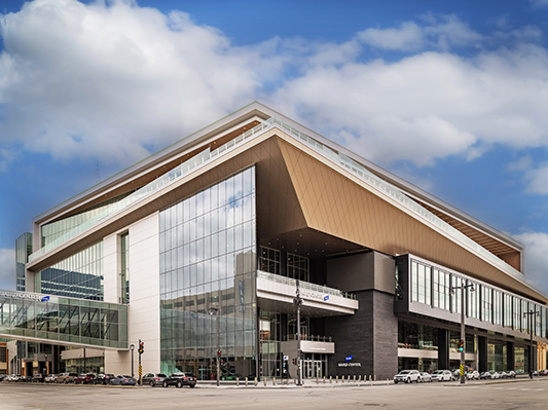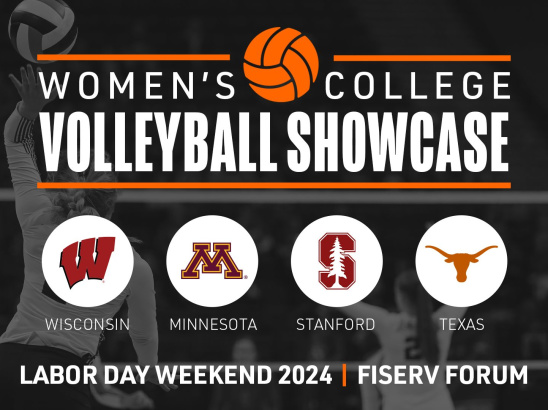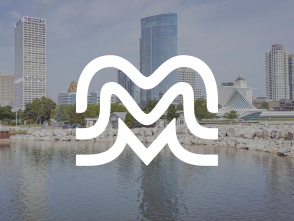For 30 years, the Bartolotta family has been a pillar of Milwaukee's culinary scene. From the scenic views and delicious fresh seafood at Harbor House to the rustic French cuisine found at Bartolotta’s Lake Park Bistro, The Bartolotta Restaurants is an iconic Milwaukee institution.
To celebrate the landmark occasion, VISIT Milwaukee sat down with Paul Bartolotta, Chef, Owner, and Co-Founder of The Bartolotta Restaurants, to hear his thoughts about Milwaukee's culinary renaissance and what makes this city special.
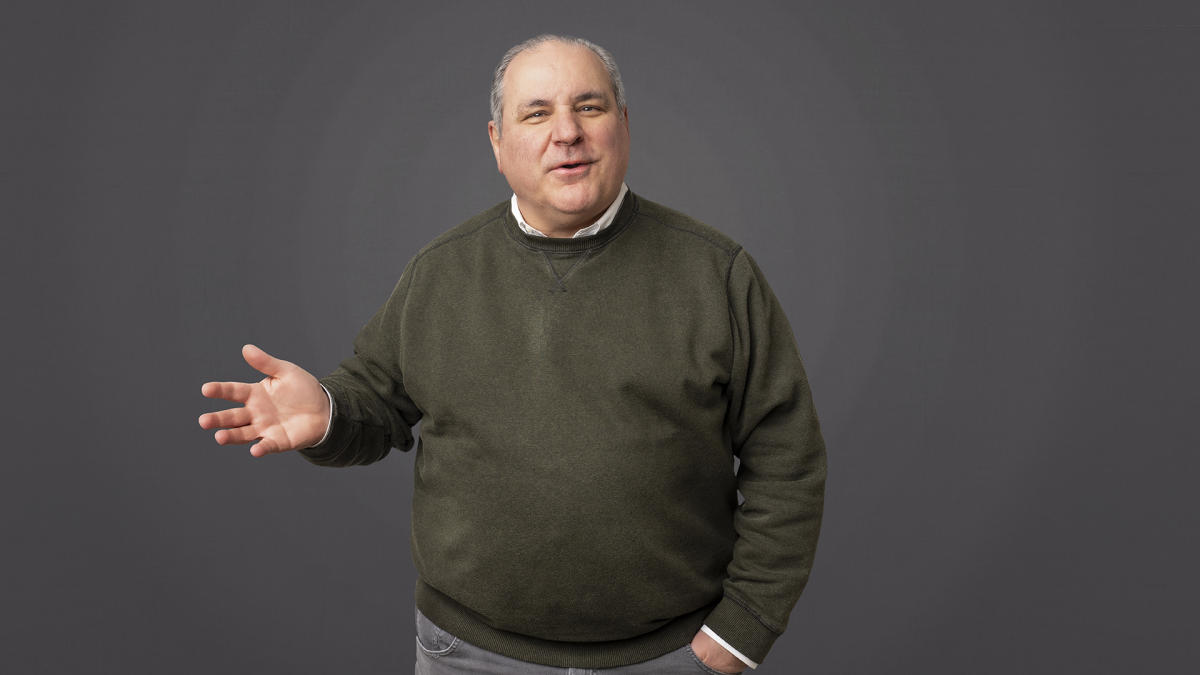
Having lived all over the world, what makes Milwaukee special?
It's home. It's where I grew up. I grew up in Wauwatosa, Wisconsin, and Milwaukee, Greater Milwaukee, and I went to Lincoln, Longfellow, Tosa East, and Milwaukee Area Technical College.
I had a great childhood, and I was inspired to take on a journey that has taken me all over the place, but it also brought me back home. For me, that's what's special. Milwaukee's full of great people, and I have lots of friends from my early days, my childhood. I've been coming back and forth as I've traveled since before the company was even started when my brother Joe and I were just ideating the first restaurant, which is 31 years ago. So, for half my life, I've been actively involved in coming back and forth to Milwaukee. It feels like I never left.
How has Milwaukee's culinary story evolved since you first opened the restaurant?
I think the story of Milwaukee is evolutionary. Like so many cities, there are ebbs and flows to sociological and economic development. I grew up in a time when my parents would ask us where we wanted to go to dinner. For our birthday dinners, we could choose. I remember going to Karl Ratzsch's, John Ernst, and all the restaurants that at the time were the restaurants. I remember my parents talking about Frenchy's and all these restaurants and then, when I became old enough, I worked in a couple of local restaurants in Wauwatosa.
Balistreri Pizzeria was my first job when I was 14 years old as a dishwasher. I later worked at the Chancery in Wauwatosa, where I got my first work permit. Years later, when my brother called me and asked I would do restaurants in Milwaukee, I think by that time many of those restaurants were unfortunately gone.
The vision for The Bartolotta Restaurants is my brother's vision as much as mine. I think I had a lot to do with bringing big city cooking to Milwaukee, from having trained in Europe and worked in New York and Chicago, and I came back here with this mindset.
But my brother had the fortitude, or, in some cases, the sheer ignorance to be bold enough to try new things. In the end, the city embraced us. Yes, we've had our hiccups along the way, but on balance, we have watched and been a part of the evolution of the city.
You talked a little bit about how you and your brother's vision helped cement the brand that you have today. Using that vision, what do you see or what do you hope is part of the future story of dining in Milwaukee?
Well, I hope we continue to view ourselves as more and more of a big city and we should be incredibly proud of that. We landed the DNC, although it never fully materialized due to the pandemic. We've landed the RNC. We're a location for the USA Triathlon once again and the Ryder Cup that came to the area in 2021.
All of these events started sending a broader message beyond the city of Milwaukee that we are an incredible tourist destination. To come here and experience all that the city has to offer as we continue to become more of a cosmopolitan type of city without ever losing our midwestern set of values. I want us to view ourselves like the destination that we are. There's a certain amount of hidden humility in Milwaukee, and I don't want that necessarily to go away. I just want people to really acknowledge that there are a lot of great things happening here in Milwaukee.
The Bartolotta Restaurants have been the standard of hospitality throughout the city and for fine dining in Milwaukee. How have you accomplished that? And has your philosophy about showing customers amazing hospitality changed over the years?
We continue to push ourselves to evolve each one of our restaurants. The food we cook today is more sophisticated than we cooked ten years ago or 25 years ago. There's no question we continue to invest and upgrade our restaurants, whether it be through our wine programs or food and beverage offerings; and also in the training of our staff and even our tabletops. We continue to push and evolve.
Fundamentally, our values have stayed the same. We, as a family – Joe, Maria, Felicia, and I -- grew up around a family table, what we now call The Bartolotta Table. Hospitality is who we are as a family, and we bring that every day to the work we do. We talk often that we're not in the restaurant business, we're in the people business. We care about each other, and we care about the city we live in. We care about the guests that come in the door and we care about every little detail that happens in our restaurants. We care about all of it. But these are personal traits, I don't think that has changed – we have just continued to drill deeper and deeper as to what that really means.
This year marks the 30th anniversary of the Bartolotta Restaurants. When you and your brother first opened Ristorante Bartolotta dal 1993 did you envision that the Bartolotta restaurants would grow to be the empire that it is today?
Never. My brother called me and said, “there's a market for what you had learned all over Italy and France in Milwaukee. The city is starved for a big city restaurant like New York or Chicago. They just don't know it yet. I'm telling you. Just help me do one restaurant."
He found the location for Ristorante in Wauwatosa. We looked at it and across the street from Ristorante used to be the Chancery, and the owner was Joe DeRosa of the DeRosa Corporation. I had worked for him when I was 16, and he had followed my career in Italy and France. After I had toured the space with my brother, my father aske d the right question, "Well, have you told Joe DeRosa that you're thinking about opening a restaurant across the street from him? You'll be competing and I think it's the respectful, right thing to do as a family friend."
We called Joe DeRosa’s office and asked if he could meet with us. We told him we were looking at the restaurant across the street. "Oh, that could be really interesting," he said, "Paul, are you going to do the food?" I said, "Yes, of course." And he said, "Joe, are you going to live in the restaurant and be there every day and protect it?" And Joe said, "Yes." "That's great. You guys will be successful," Joe DeRosa said, He asked if we had raised the money and we had raised way less than half. And he said, "I'll help you put all the rest of the money together and I'll help you organize and help you do some of the accounting, and I'll ensure that you guys are successful. As long as, Paul, you're doing the food and Joe, you're going to live in the restaurant."
When we opened our first restaurant, he made sure that Joe and I owned 51%, and he put up more than half of the money. Like, who does that? Within like 18 months, he gave us the opportunity to buy him out. He said, "You guys are doing great. Buy me out. I'm happy to have helped you, I'm excited to see what you guys do." I mean, he is not only a family friend, he is a mentor. It was a level of generosity. It was like we would have never grown or had this opportunity. So, in the beginning, did I ever think we'd have 17 businesses? No, never.



